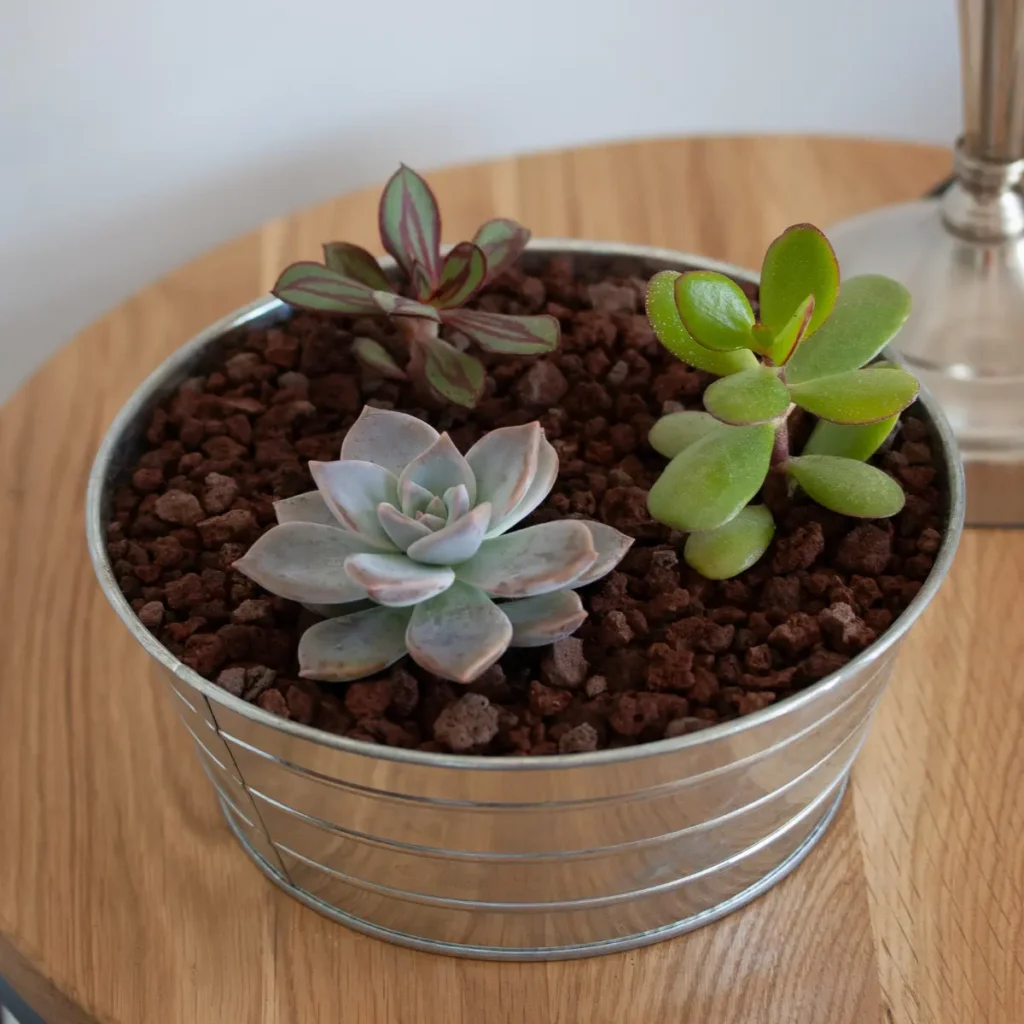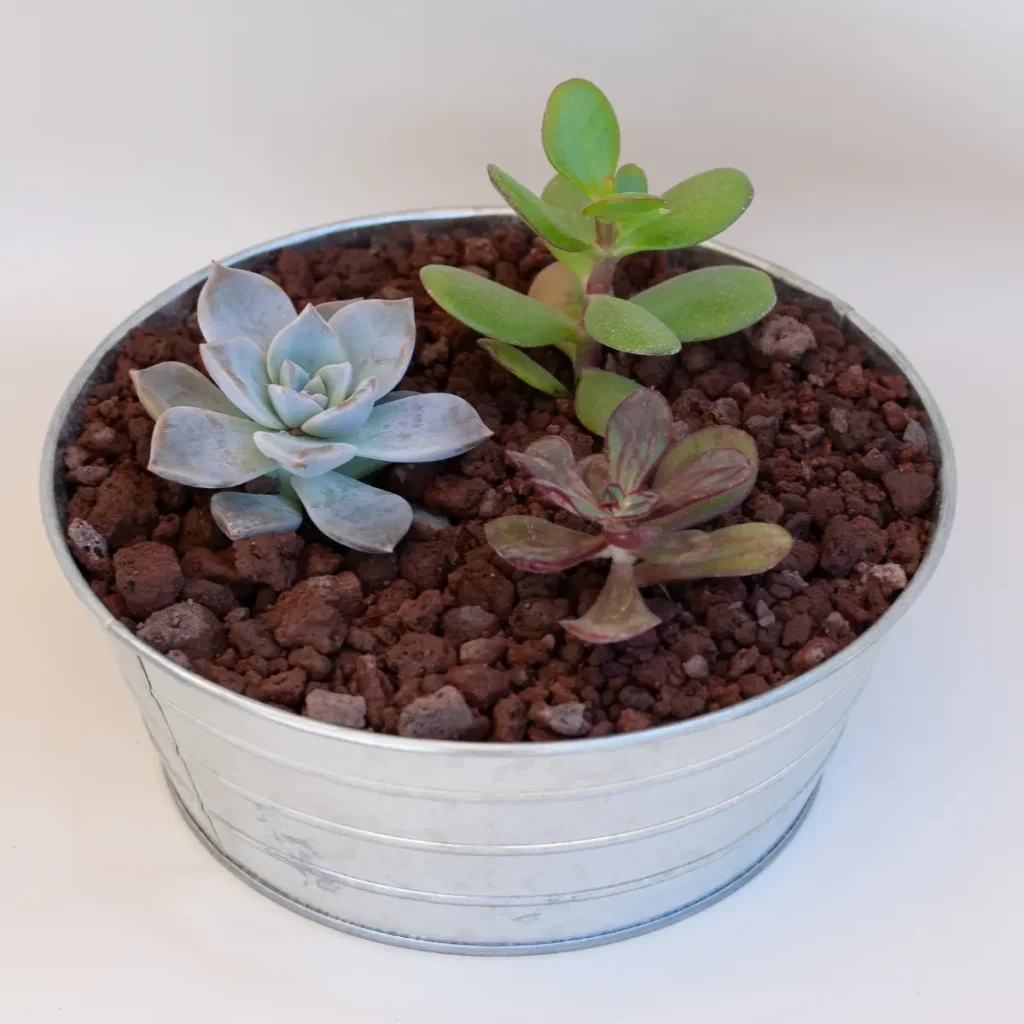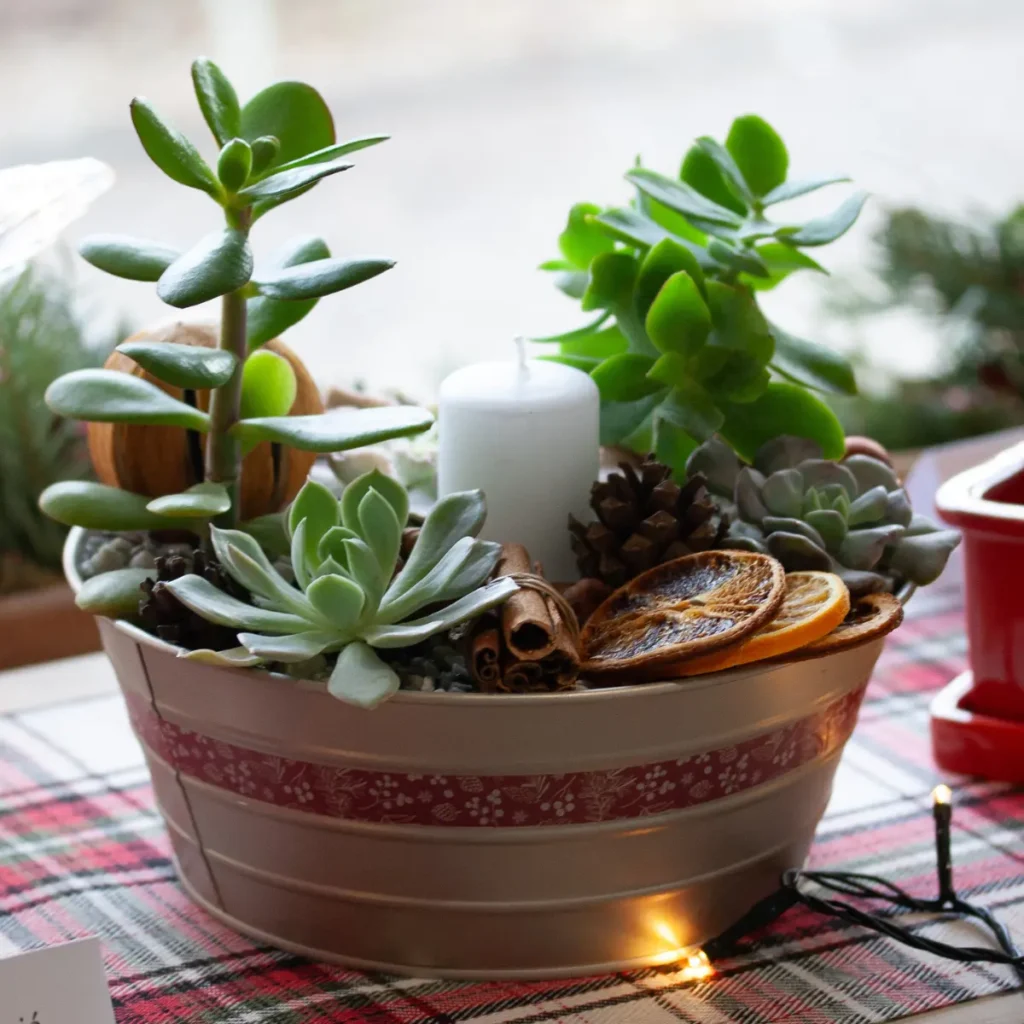


Bienvenue dans le monde merveilleux des succulentes ! Ce sont des plantes fascinantes qui ont de grandes capacités d’adaptation et une très forte résistance à la sécheresse. Il en existe de nombreuses espèces et variétés dans une multitude de formes et de couleurs. Si vous avez craqué ou que l’on vous a offert l’une de nos magnifiques compositions, suivez le guide ci-dessous pour découvrir comment en prendre soin !
Nos succulentes adorent le soleil, mais attention tout de même à ne pas les faire griller ! Installez-les dans un endroit très lumineux mais de préférence avec une lumière indirecte. Certaines succulentes peuvent supporter les rayons du soleil mais elles ont besoin de s’y habituer progressivement. Une fenêtre orientée au sud avec un léger voilage sera donc parfaite pour elles.
La plupart des succulentes sont assez frileuses, vous ne pourrez laisser votre composition de succulentes dehors qu’à la condition d’un temps sec et d’une température supérieure à 5°C.
Nos petites succulentes ne sont pas des assoiffées : un arrosage une fois toutes les deux semaines en été devrait suffire. En hiver, suivant le taux d’humidité de votre logement, vous pourrez réduire à un arrosage toutes les 4 voire même toutes les 6 semaines. Assurez-vous simplement que le sol soit totalement sec entre deux sessions d’hydratation pour éviter toute catastrophe.
Si les feuilles deviennent jaunes et molles, c’est probablement dû à un arrosage excessif et si au contraire les feuilles se fripent ou tombent alors qu’elles sont encore vertes, c’est que vos plantes manquent d’eau !
Soyez prudents lors de l’arrosage car nos petits contenants en zinc ne sont pas toujours totalement hermétiques !
Les succulentes ont une faculté impressionnante à se multiplier : à partir d’une simple feuille pour les crassulas ou les echeverias ou en les dédoublant pour les haworthias ou les sempervivums. Si vous voulez vous lancer dans les boutures, prenez des succulentes, vous verrez c’est d’une facilité déconcertante !
Les succulentes sont particulièrement résistantes, mais il arrive que des pucerons ou des cochenilles s’installent sous leurs feuilles et dans leurs branches. Un traitement à base de savon noir suffit généralement à les faire fuire, il vous faudra cependant penser à rincer la plante après le traitement.
Le plus grand risque vient de la pourriture des racines, dû à de trop importants arrosages : dans ces cas-là, il vous faudra dépoter votre plante, lui retirer ses racines abîmées et la remettre dans un substrat sec et plus drainant.
Certaines succulentes comme la Crassula ovata sont légèrement toxiques pour les animaux et irritantes pour les êtres humains. D’autres comme les Haworthias, les Sedeverias ou les Echeverias ne présentent aucun danger. En cas d’ingestion, n’hésitez pas à contacter le centre antipoison (vétérinaire ou non) le plus proche.
Besoin d’aide ou de conseils supplémentaires ? Notre équipe est là pour vous ! N’hésitez pas à nous contacter pour toute question ou problème concernant vos succulentes. Nous sommes là pour vous aider à faire de votre expérience avec les plantes une aventure joyeuse et sans tracas !
Pour offrir les meilleures expériences, nous utilisons des technologies telles que les cookies pour stocker et/ou accéder aux informations des appareils. Le fait de consentir à ces technologies nous permettra de traiter des données telles que le comportement de navigation ou les ID uniques sur ce site. Le fait de ne pas consentir ou de retirer son consentement peut avoir un effet négatif sur certaines caractéristiques et fonctions.